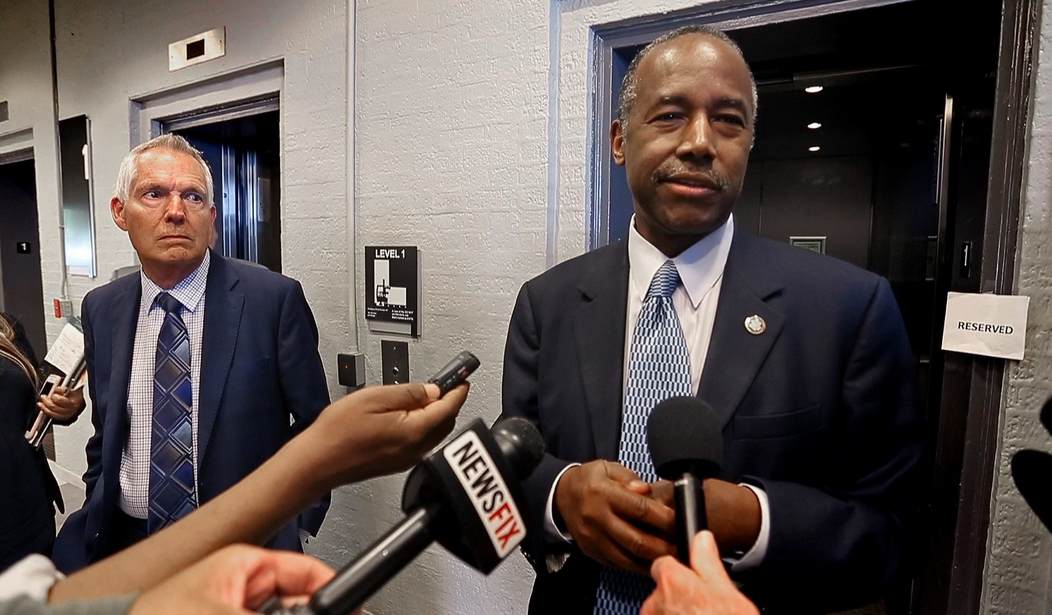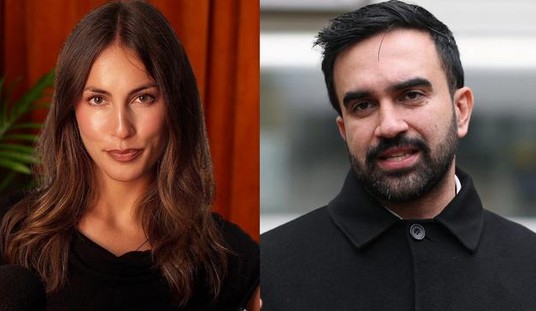WASHINGTON – Housing and Urban Development Secretary Ben Carson downplayed concerns about the Trump administration’s proposed cuts to the HUD budget, telling a public housing conference today that “nobody’s going to be thrown out on the street” while he is in charge of the agency.
When explaining the importance of getting young people involved in public housing issues, Carson, a retired neurosurgeon, drew laughter from the crowd when he said there was a greater return on investment from operating on a child versus an “old geezer.” The former presidential candidate, who said he’s operated on more than 15,000 patients, quickly clarified that he was joking and that he likes the elderly.
“I know people are very, very concerned about the new budget numbers that have been put out there and think it’s a crisis and the end of the world, but it actually is not because the part that people are not hearing, even though I have said it several times, is that this administration considers housing a significant part of infrastructure in our country and, as such, the infrastructure bill that’s being worked on has a significant inclusion of housing in it,” Carson said during a keynote address at the National Low Income Housing Coalition’s Housing Policy Forum.
“There is no one, section 811, 202, any of them, nobody’s going to be thrown out on the street, you know – what would that accomplish? That doesn’t make any sense and is certainly not going to happen while I’m around,” he said as the audience applauded.
The Trump administration’s proposed budget would reduce the HUD budget by $6.2 billion to $40.7 billion.
Referencing the $20 trillion national debt, Carson said Americans have a responsibility to help those who “come after us – to our children and grandchildren.” He told the crowd that every newborn already owes $60,000.
“You’ve heard that number and you can say that number, but does anybody really comprehend what that means? That means $60,000 for every man, woman and child – thousands of babies will be born today each with a price tag of $60,000 in debt on their head,” he said.
“And some people say it is just a number and doesn’t mean anything. Tell that to the people of 17th century Spain, of 18th century France or 19th century Great Britain or ancient Egypt … ancient Rome – they all did the same thing, accumulated debt, became fiscally irresponsible and went down the tubes. So, obviously, what we are thinking about now is how do we spend efficiently and effectively – that’s one of the reasons I’m on this listening tour. I just got back on Friday from Texas,” he added.
Carson said the ongoing “listening tour” has given him a chance to examine the initiatives that are “effective” in helping people get out of poverty, putting them on a “trajectory” of success.
“The things that actually work for the elderly and for the disabled people in our country – that encourage the public-private partnerships to occur,” he specified.
The former Republican presidential candidate said many mayors, governors and housing commissioners from both parties have told him the amount of “red tape” in the area of public housing needs to be addressed. Carson said “excessive” regulation is hurting America, drawing some cheers from the audience.
“That’s what bureaucracy is – bureaucracy is when you care more about the rule than you care about the goals, and that is killing us as a nation so we are working very hard to get the inappropriate things out of the way,” he said.
Carson told the audience that he is working on “housing savings accounts” at HUD. The money inside the accounts would be used for maintenance and other expenses for public housing units.
“If there’s nothing to take care of, it just keeps accumulating. And if you leave in 5-10 years you get the money and it could be a very substantial amount of money for a down payment on your own house,” he said. “See, we need to start thinking this way.”
Carson explained how he judges success at HUD.
“For me, success at HUD is not how many people we can have in public housing, it’s how many people we can get out of it and how many people we have become a strong and vibrant part of society. We can do that,” he said.
Carson was asked how young people who are passionate about public housing could convince others to get involved in the cause.
“My whole medical career was surrounding young people and recognizing that in our country it is going to be the young people who are going to decide who we are and what we’ve become. It’s one of the reasons my wife and I put reading rooms in all over the country primarily in Title I schools where kids come from homes with no books. They go to school with no library or poorly funded library – they are not likely to become readers,” Carson responded.
“The reason I became a pediatric neurosurgeon is because you can spend 10, 12, 15 hours operating on a kid and if you’re successful the return is maybe 50, 60, 70 years of life, whereas with an old geezer you spend all that time operating and they die in five years or something else. So I like to get a big return on my investment. We get a big return,” he said to laugher from the audience.
Carson continued, “I’m just kidding. I like old people, but you see the point. There is so much potential in our young people and we have to focus on what is going to work for them.”









Join the conversation as a VIP Member